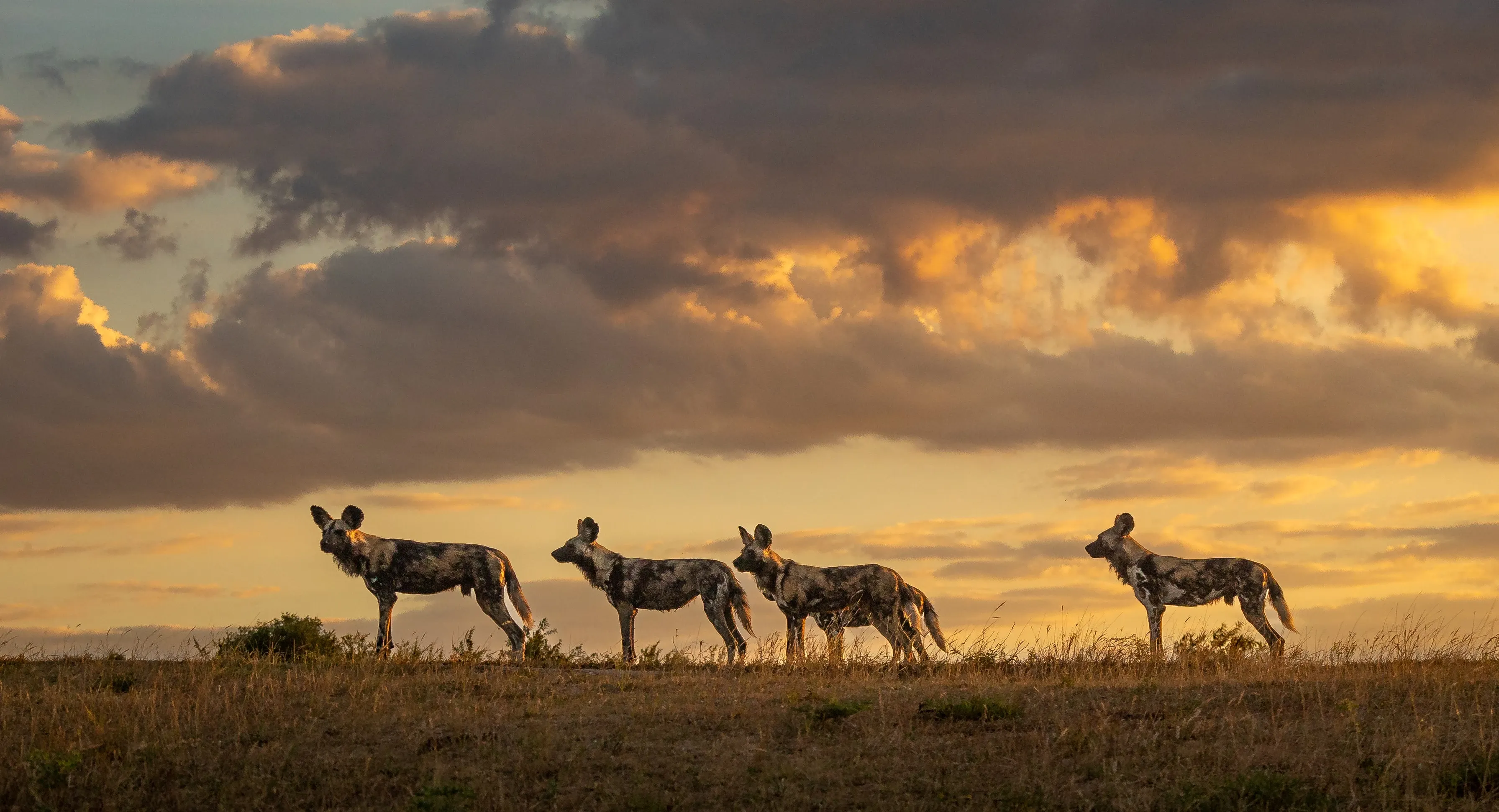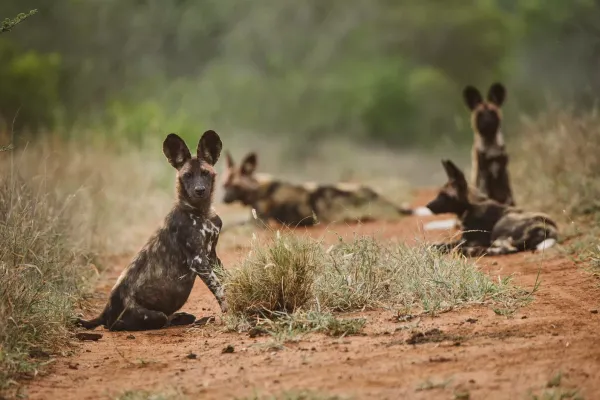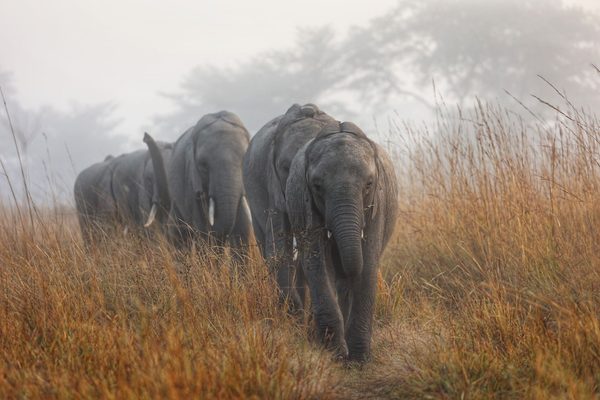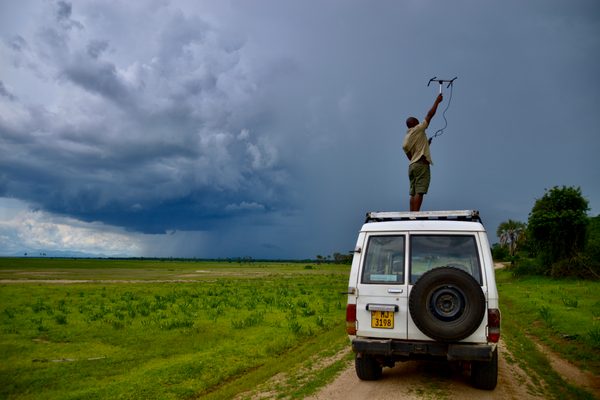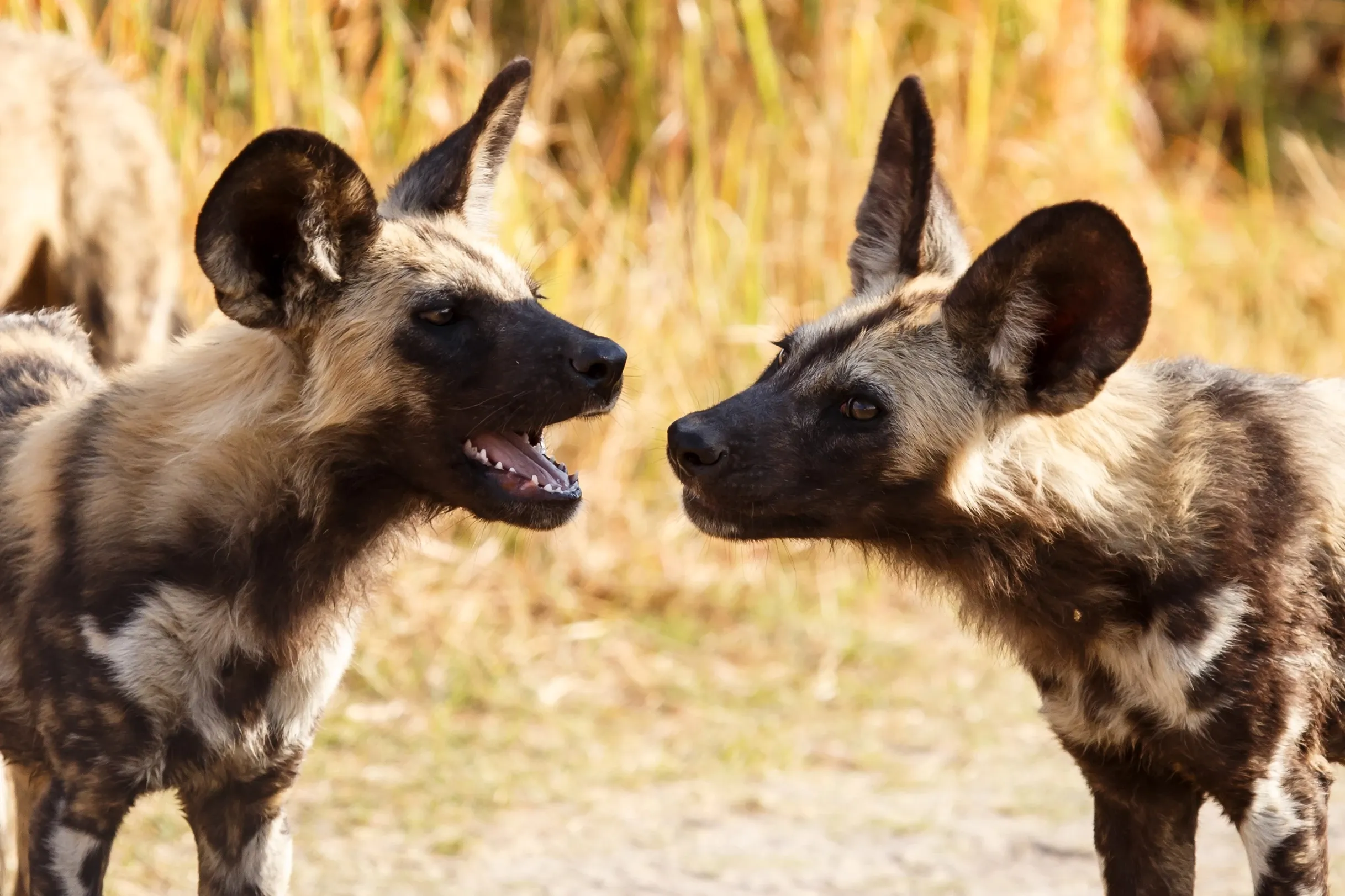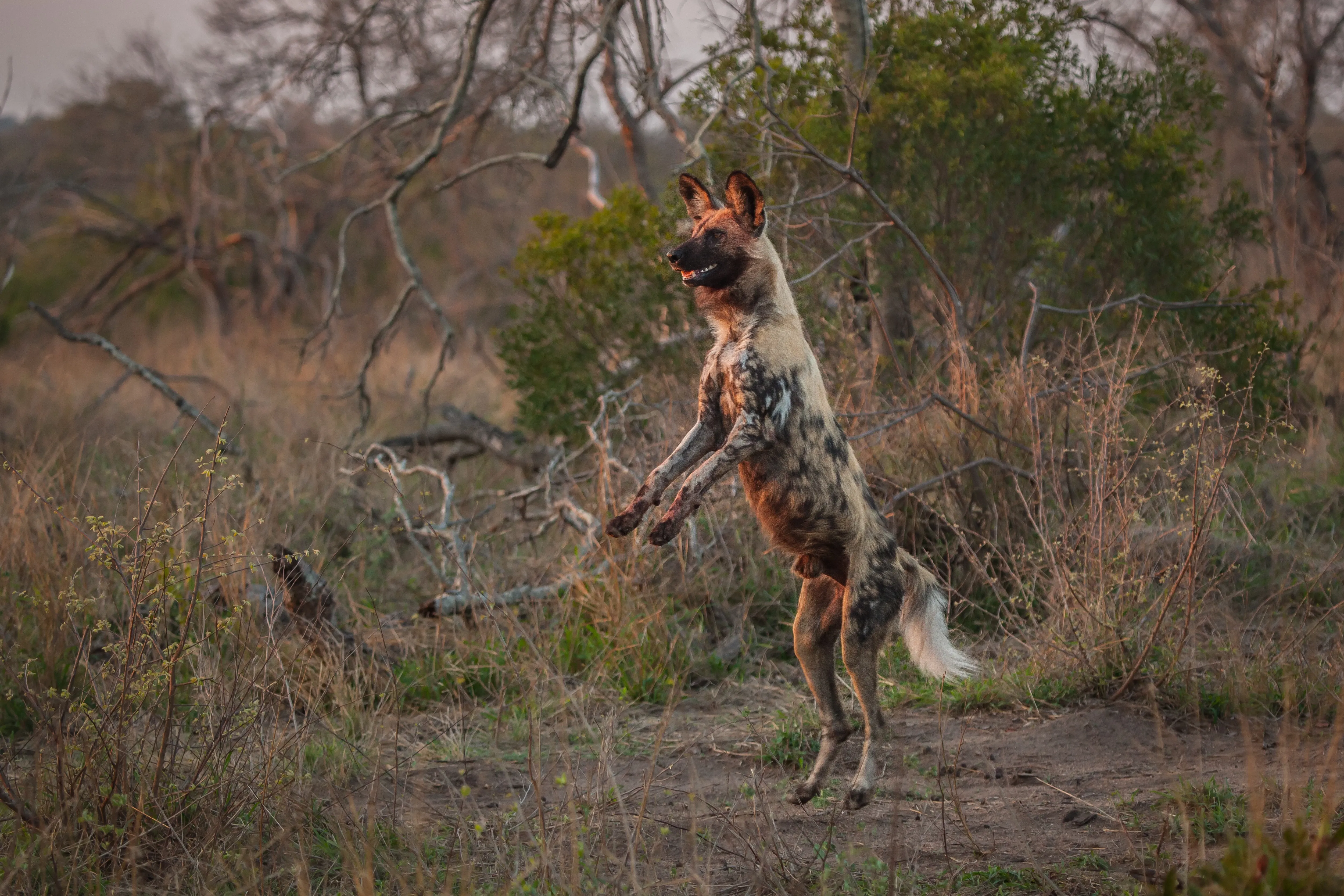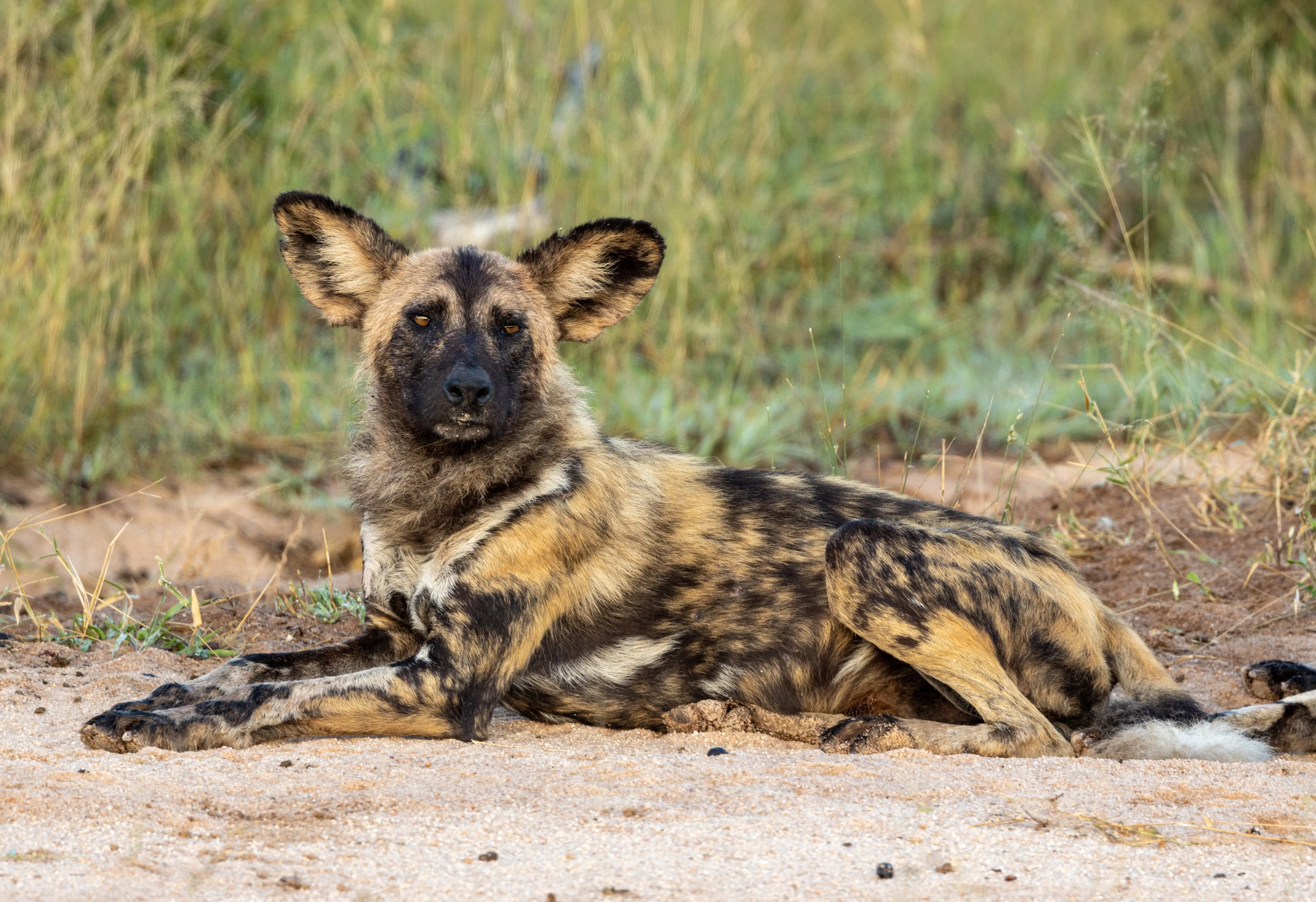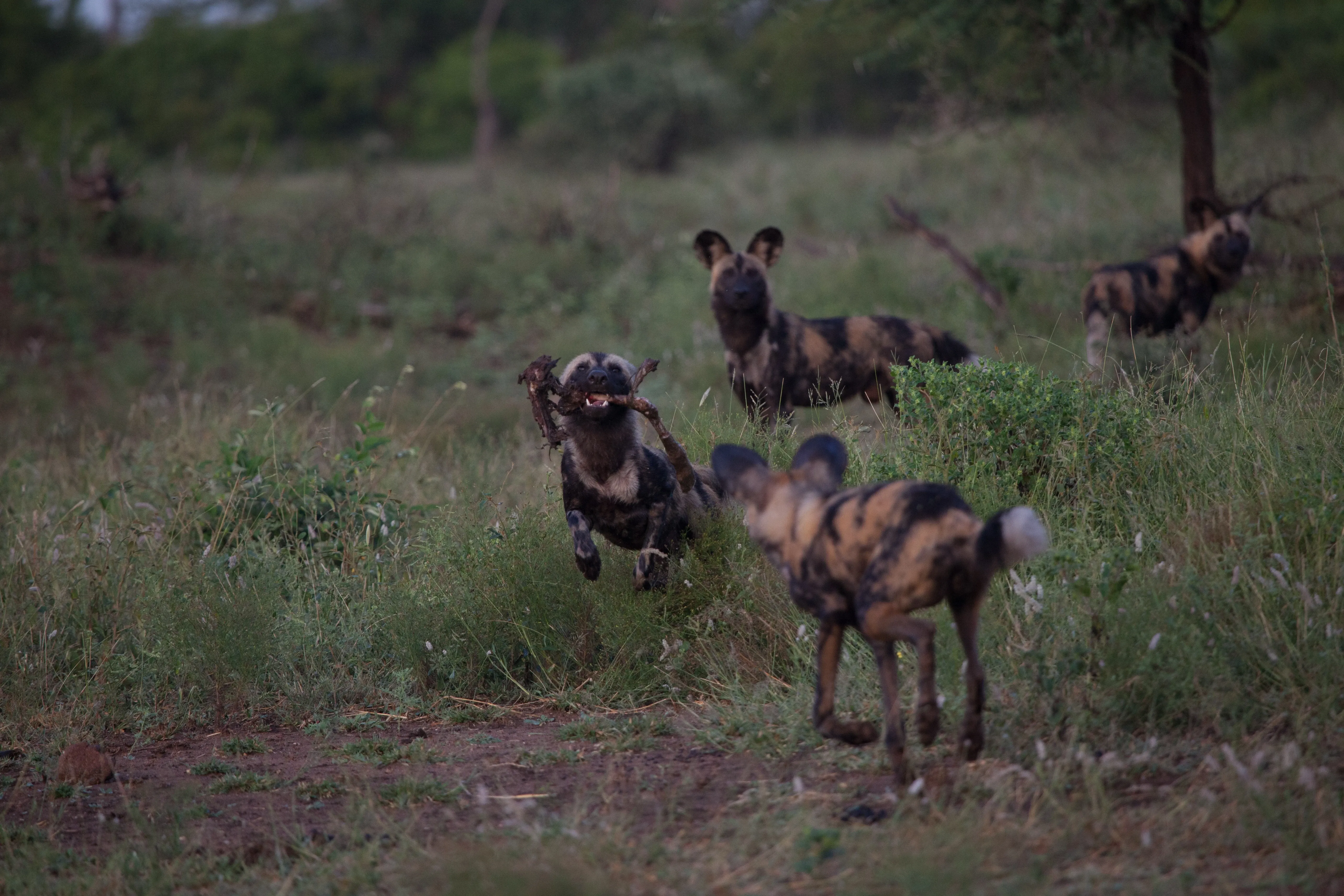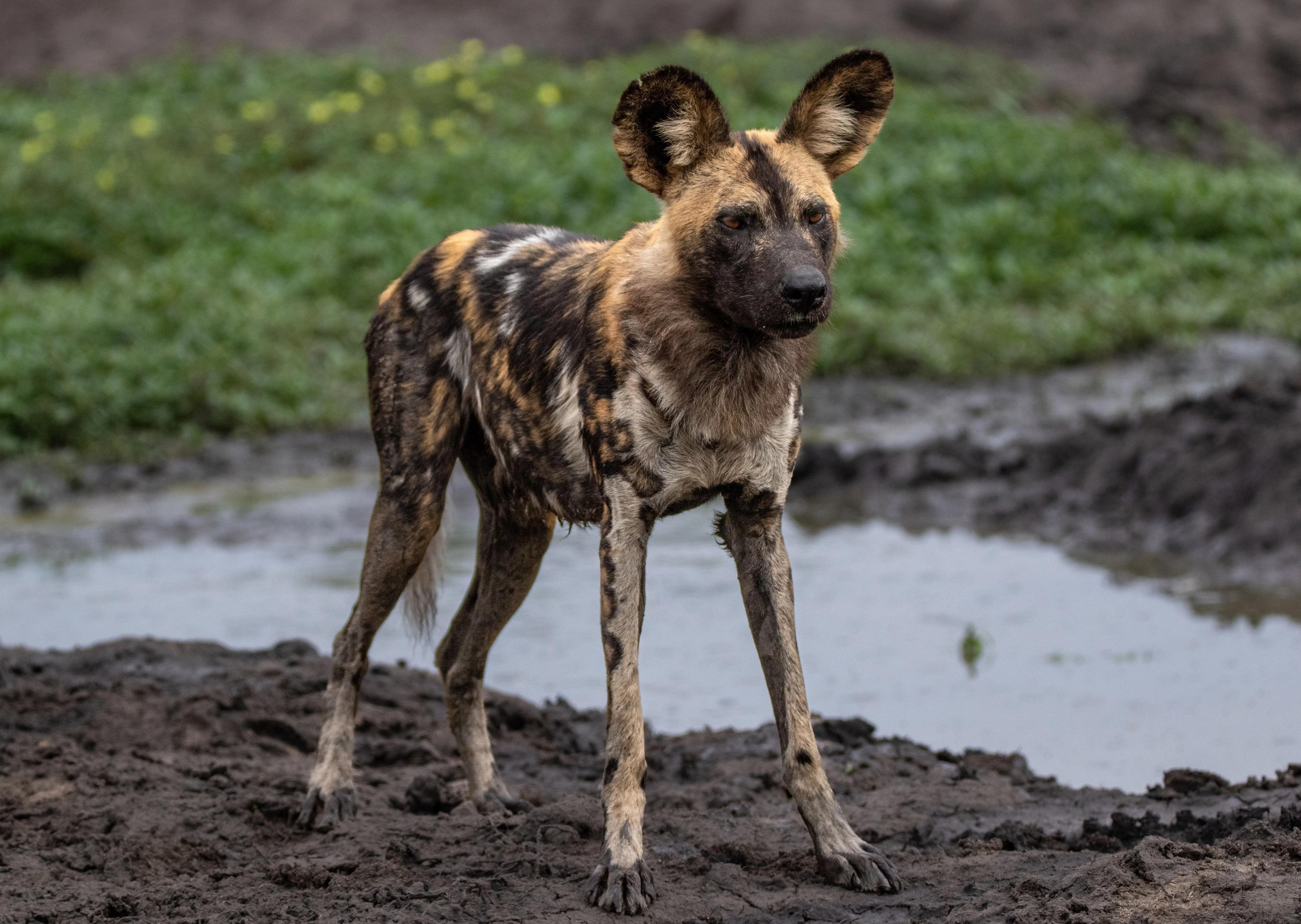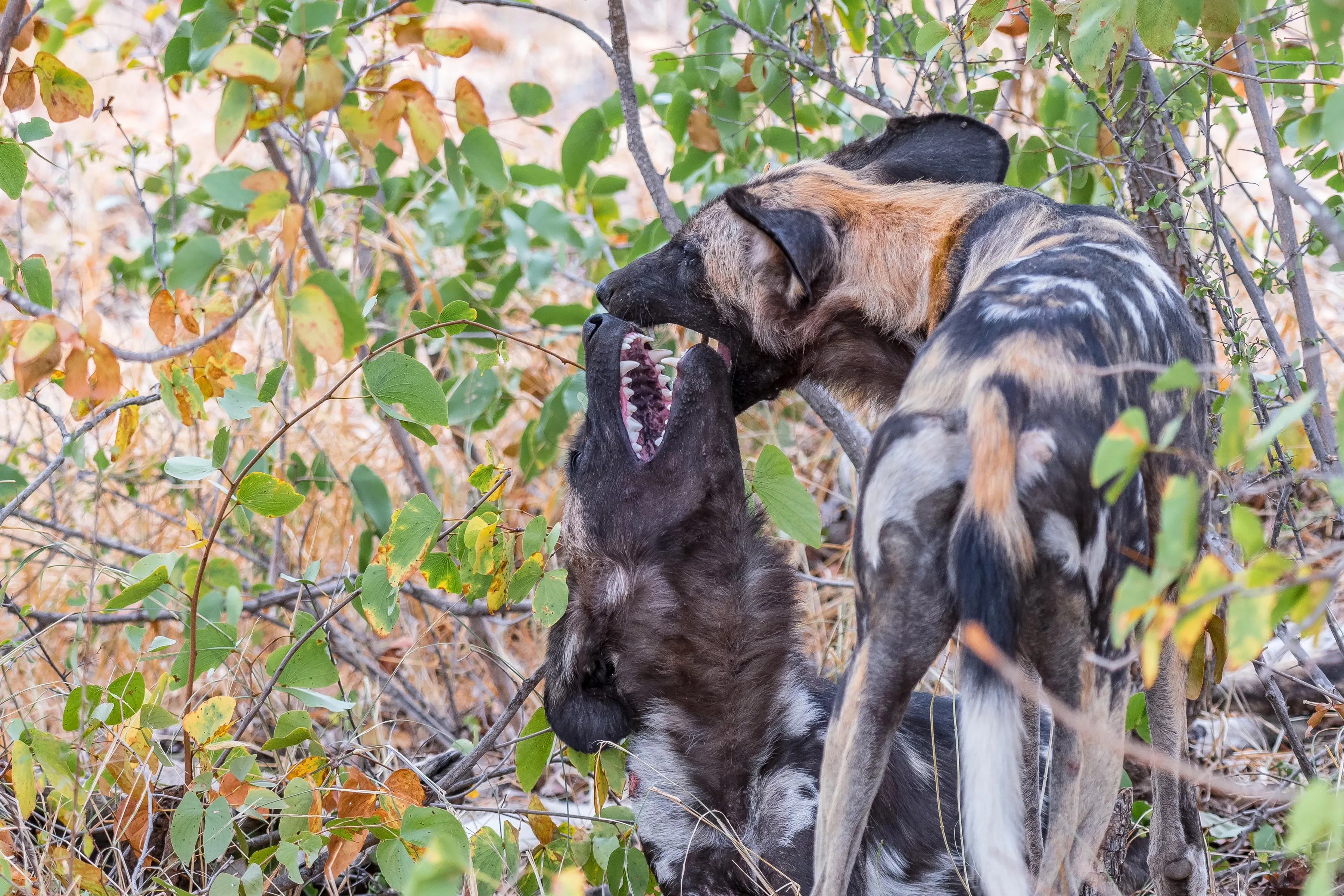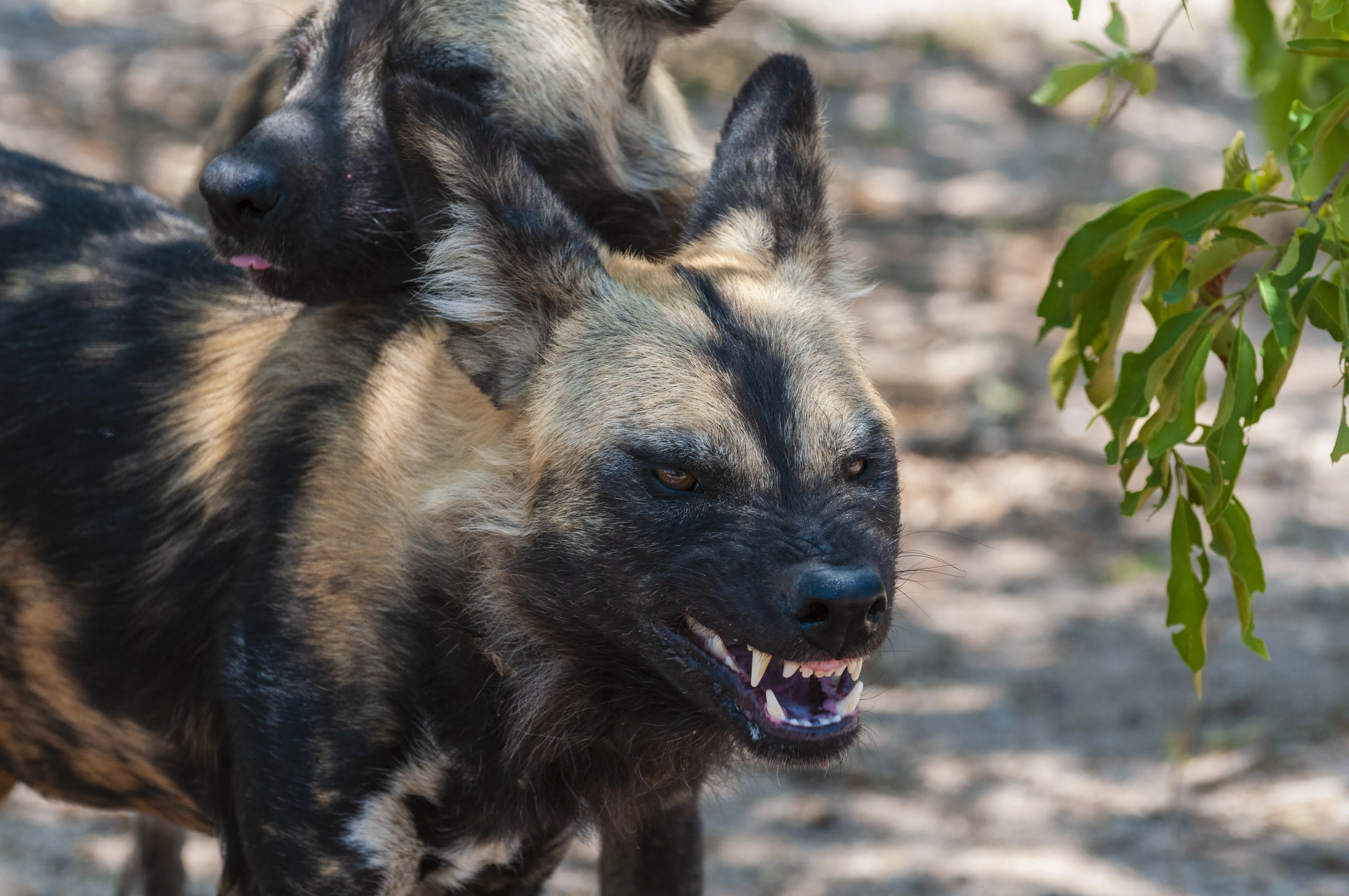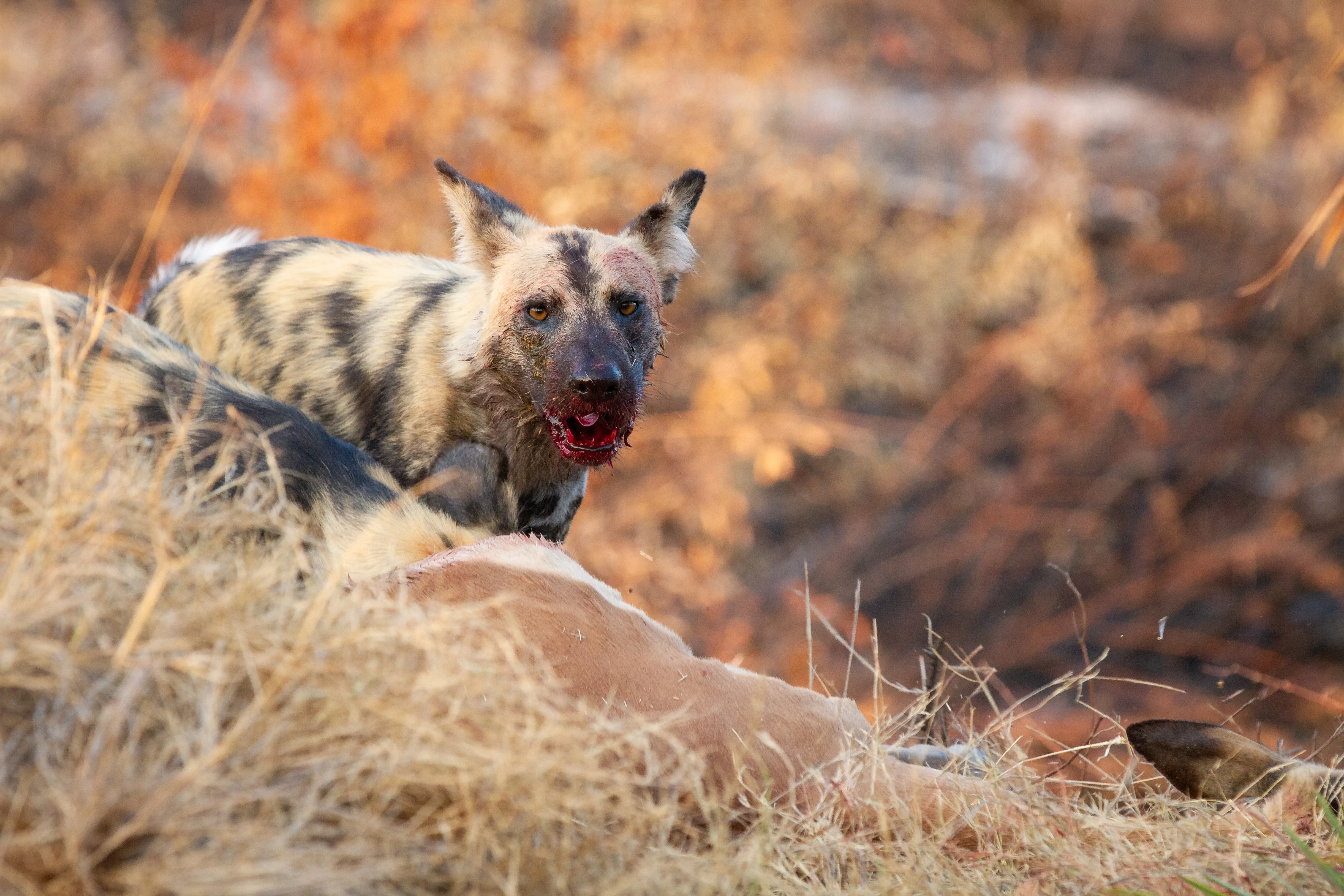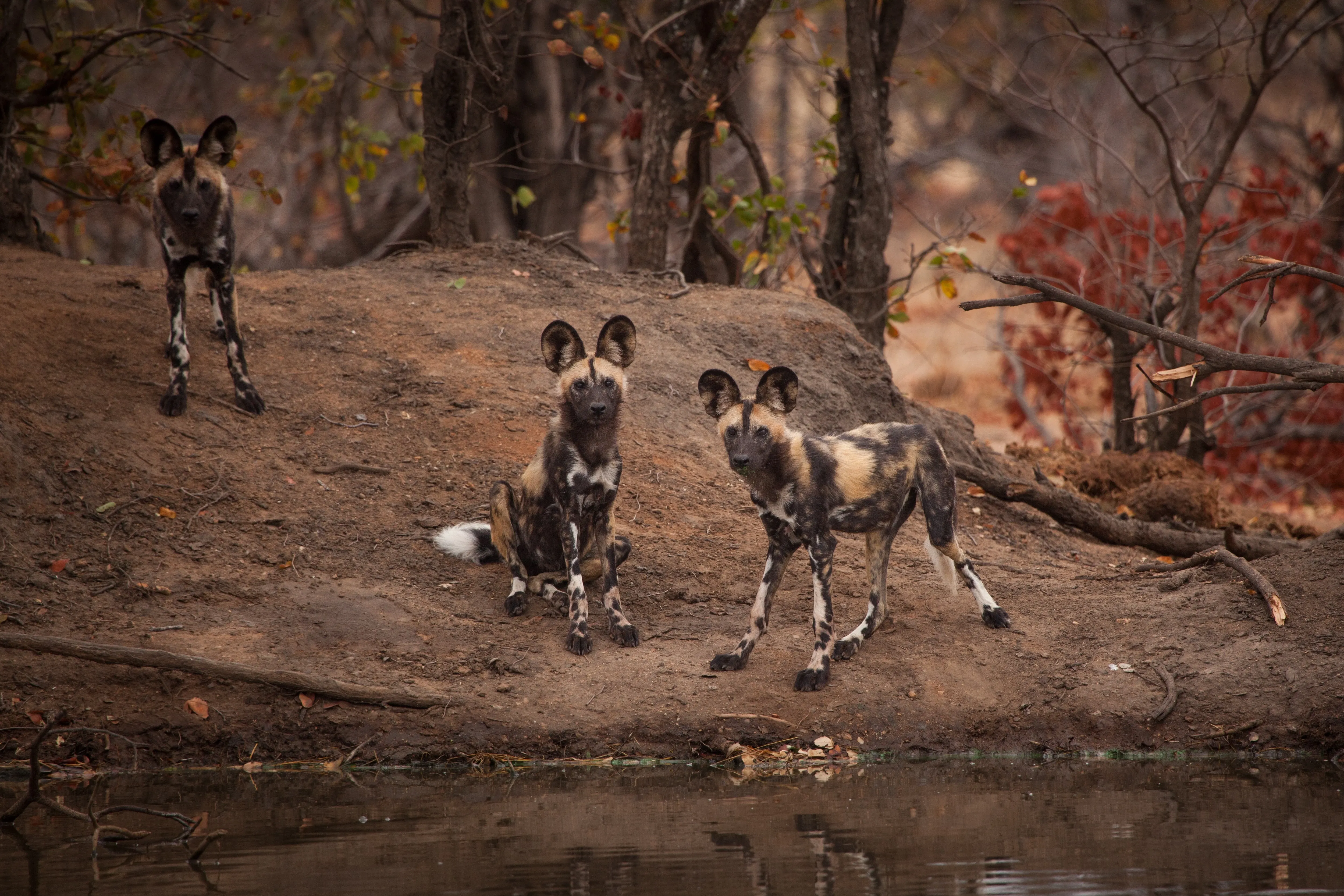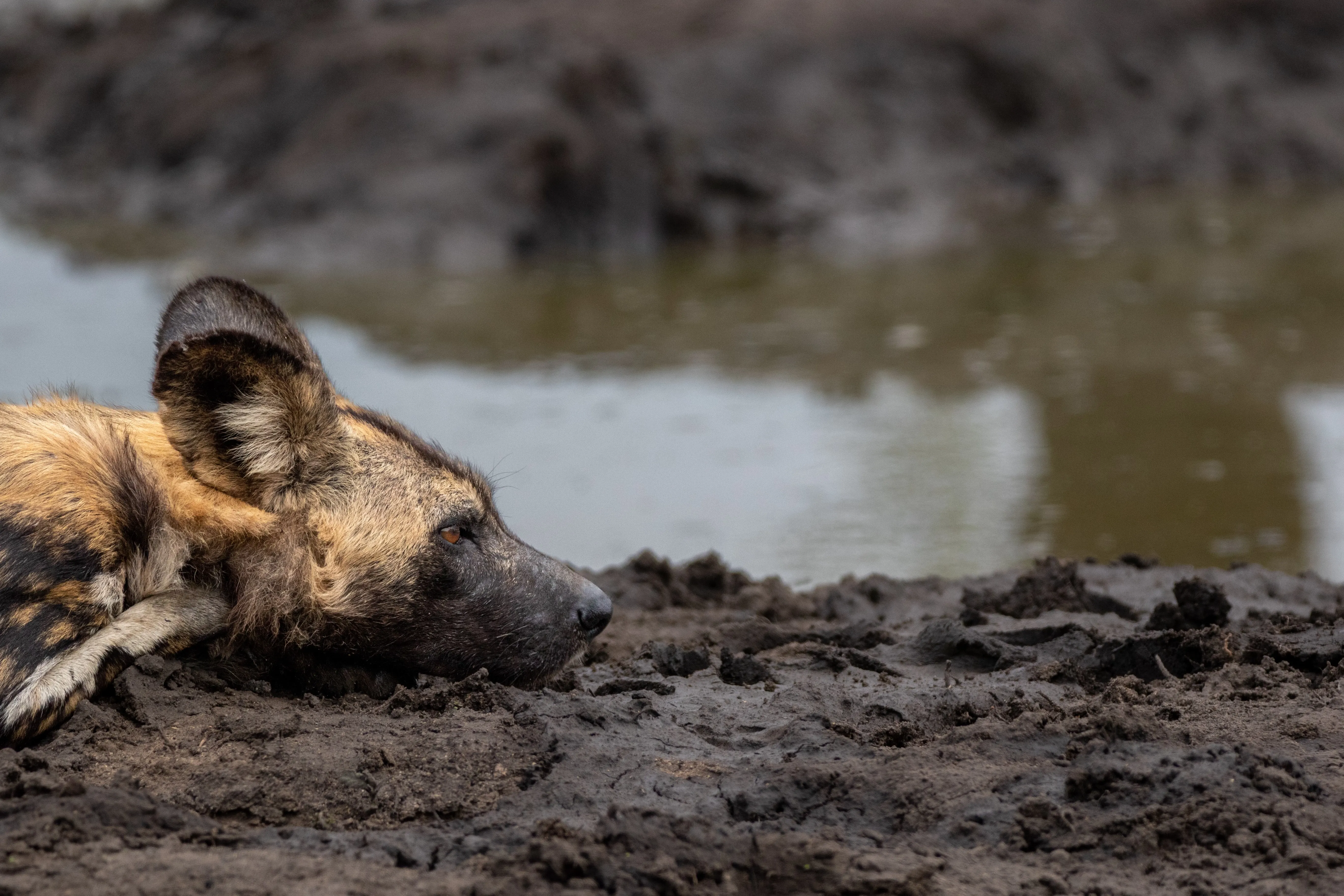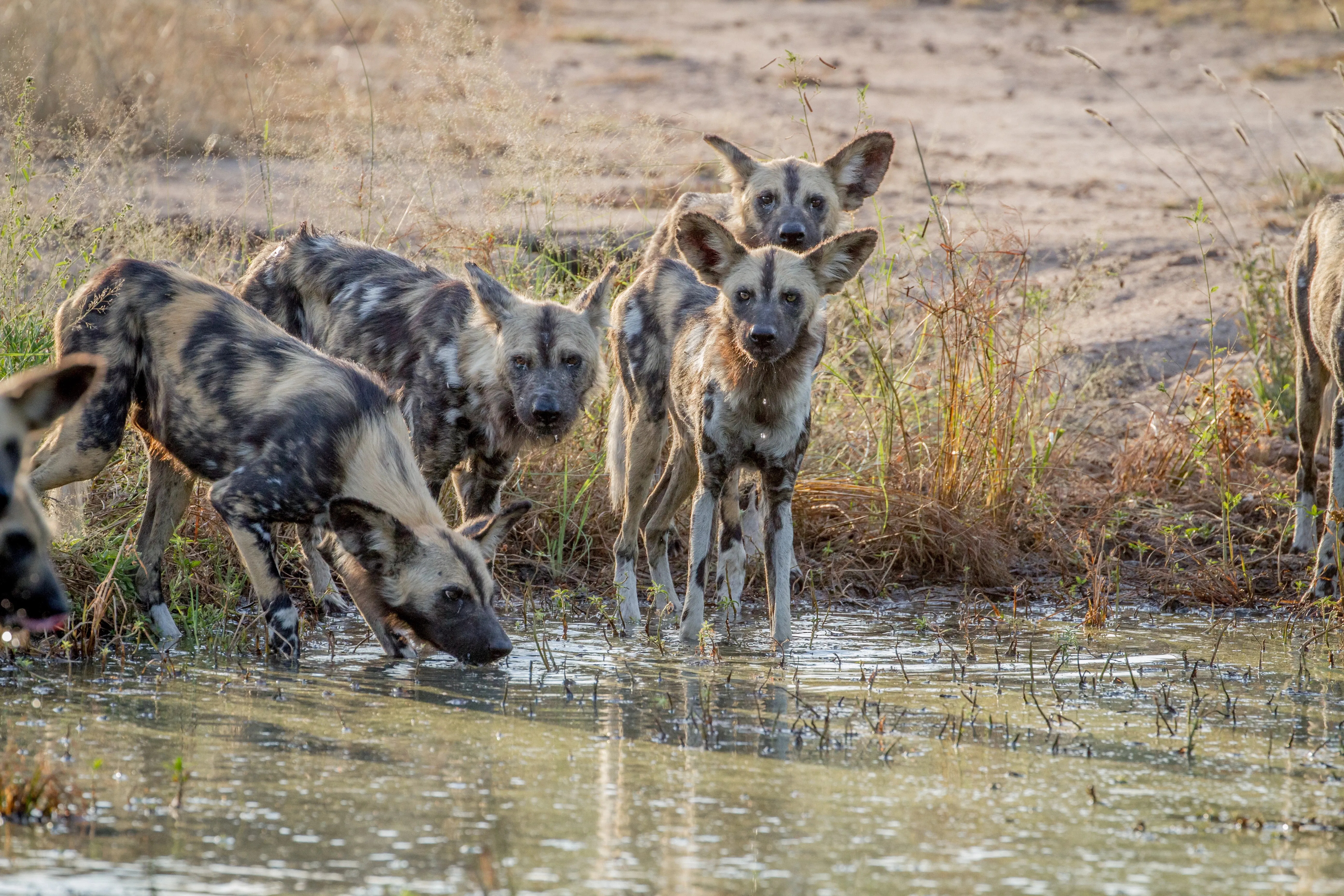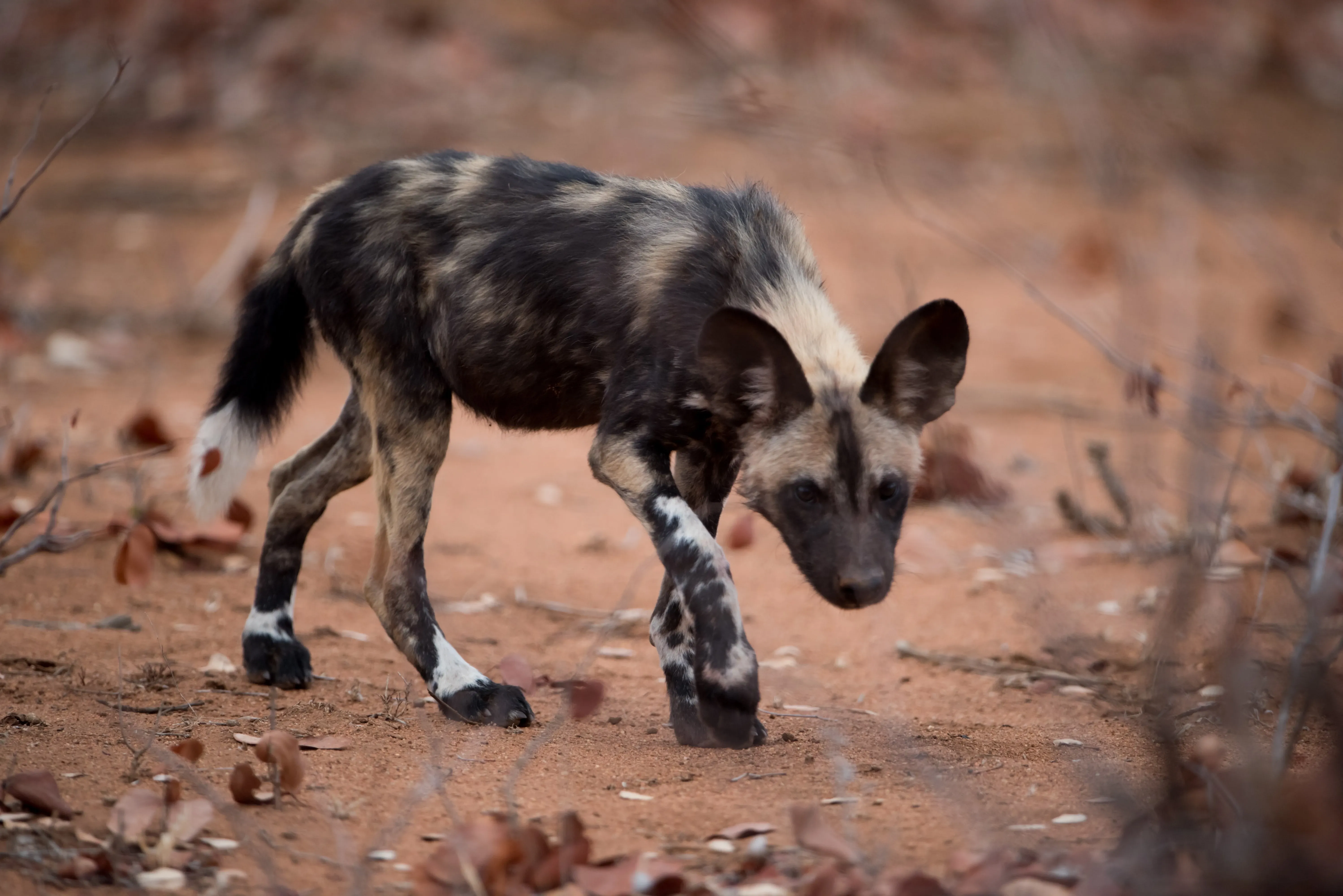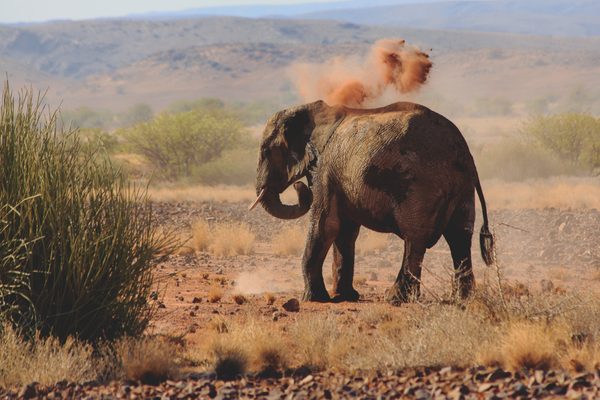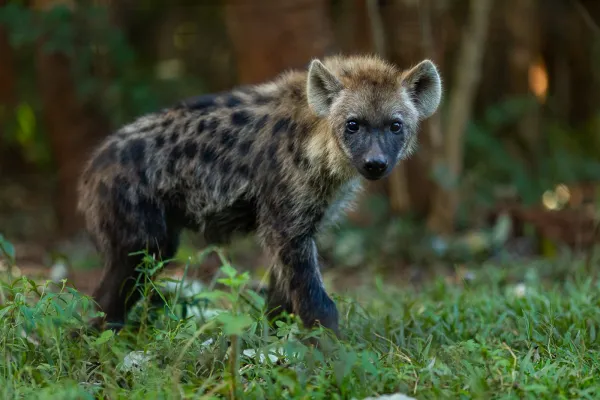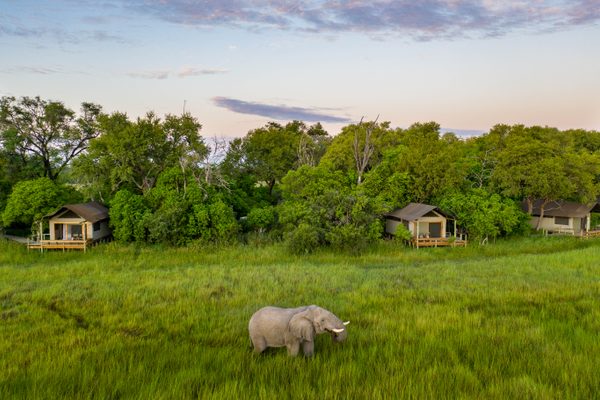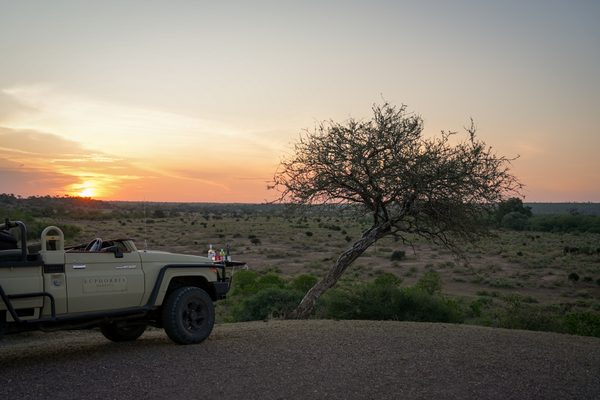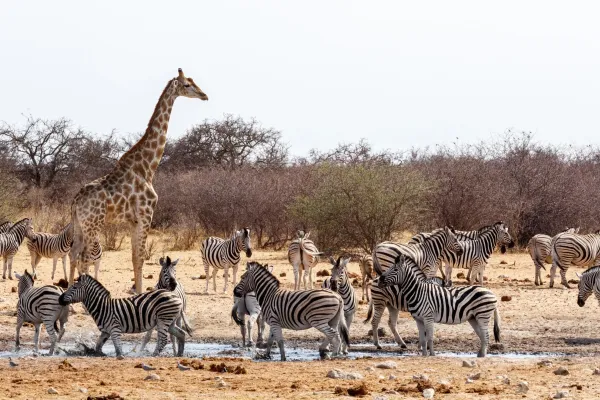Volunteering with African wild dogs
Volunteer with African wild dogs and contribute to the conservation of one of Africa's most endangered predators. Known for their intricate social structures and remarkable hunting skills, African wild dogs are crucial for maintaining ecological balance in their habitats.
Volunteers engage in hands-on activities that support the protection and preservation of African wild dogs, from monitoring their behaviour and tracking their movements to assisting with habitat restoration and community education efforts.
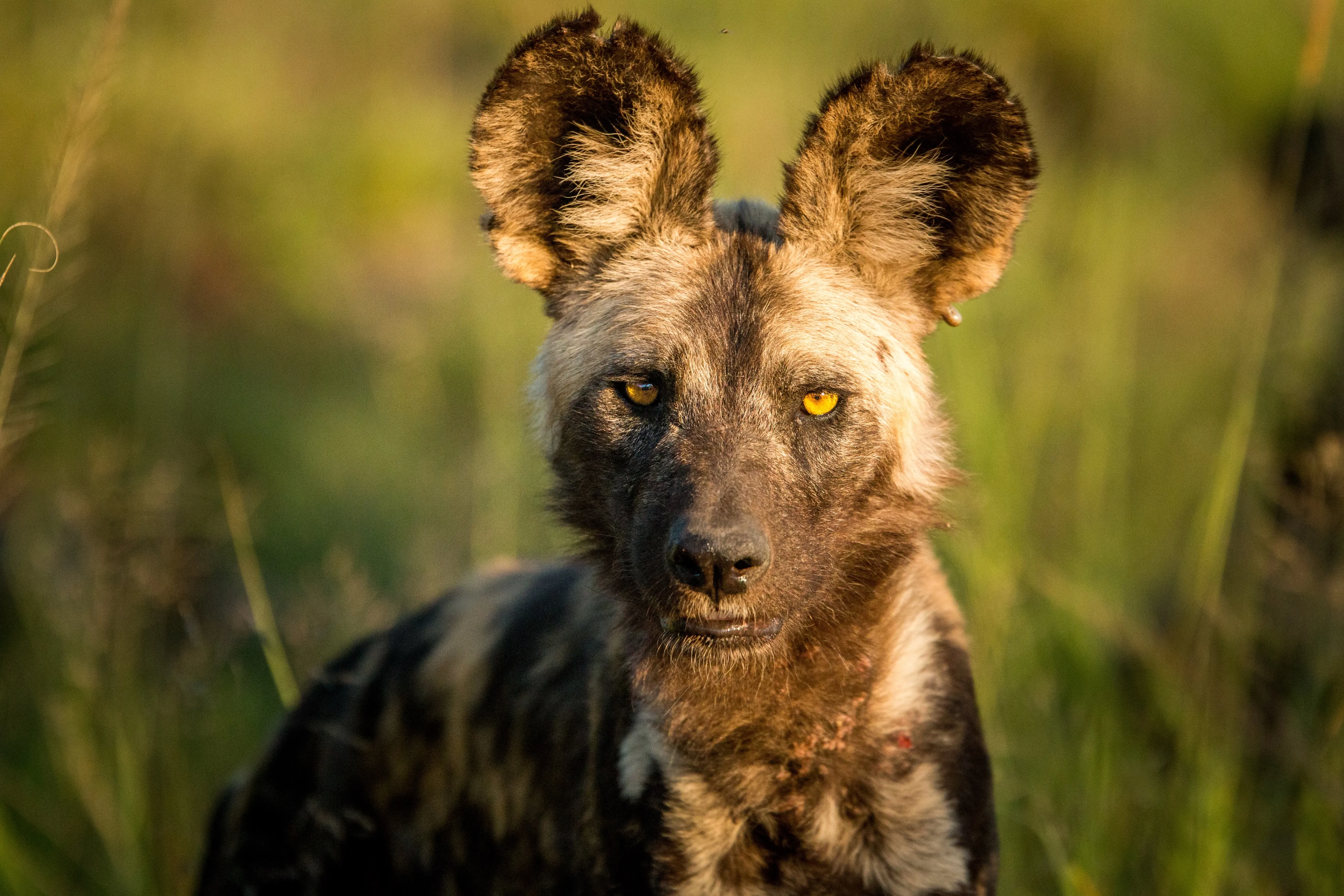
Whether motivated by a love for wildlife conservation, a commitment to making a meaningful impact, or a fascination with African wild dogs, this immersive experience will help safeguard these remarkable animals and deepen your understanding of wildlife conservation as well as the delicate interplay of ecosystems.
Join us in making a tangible difference for African wild dogs, securing their future and the vibrant landscapes they inhabit.
Highlights of volunteering with wild dogs
- Witness the excitement of tracking and monitoring African wild dogs in their natural environment.
- Contribute to crucial conservation initiatives and aid in essential research.
- Acquire valuable skills in wildlife monitoring, data collection, and habitat management.
- Promote and support ethical practices that help ensure the survival and health of African wild dogs.
- Experience the wild places of Africa and its magical spell
What is unique about African wild dogs
African wild dogs, also known as painted wolves, are uniquely fascinating creatures. Their striking appearance, characterized by a patchwork of black, brown, and white fur, sets them apart from other predators.
These animals are not only visually distinctive but also possess one of the most complex social structures in the animal kingdom. Living in tight-knit packs, African wild dogs exhibit extraordinary cooperation and communication skills, which are crucial for their highly coordinated hunting strategies.
Unlike many other predators, they rely on teamwork and sophisticated vocalizations to bring down prey, showcasing an impressive level of social intelligence. Their hunting efficiency and social bonds are complemented by their remarkable adaptability to diverse habitats, from savannas to arid landscapes.
However, despite their adaptability and social prowess, African wild dogs face significant threats from habitat loss, human-wildlife conflict, and disease, making their conservation particularly critical. Their behavior, social dynamics, and the challenges they face highlight the delicate balance of ecosystems and the intricate roles these animals play within them.
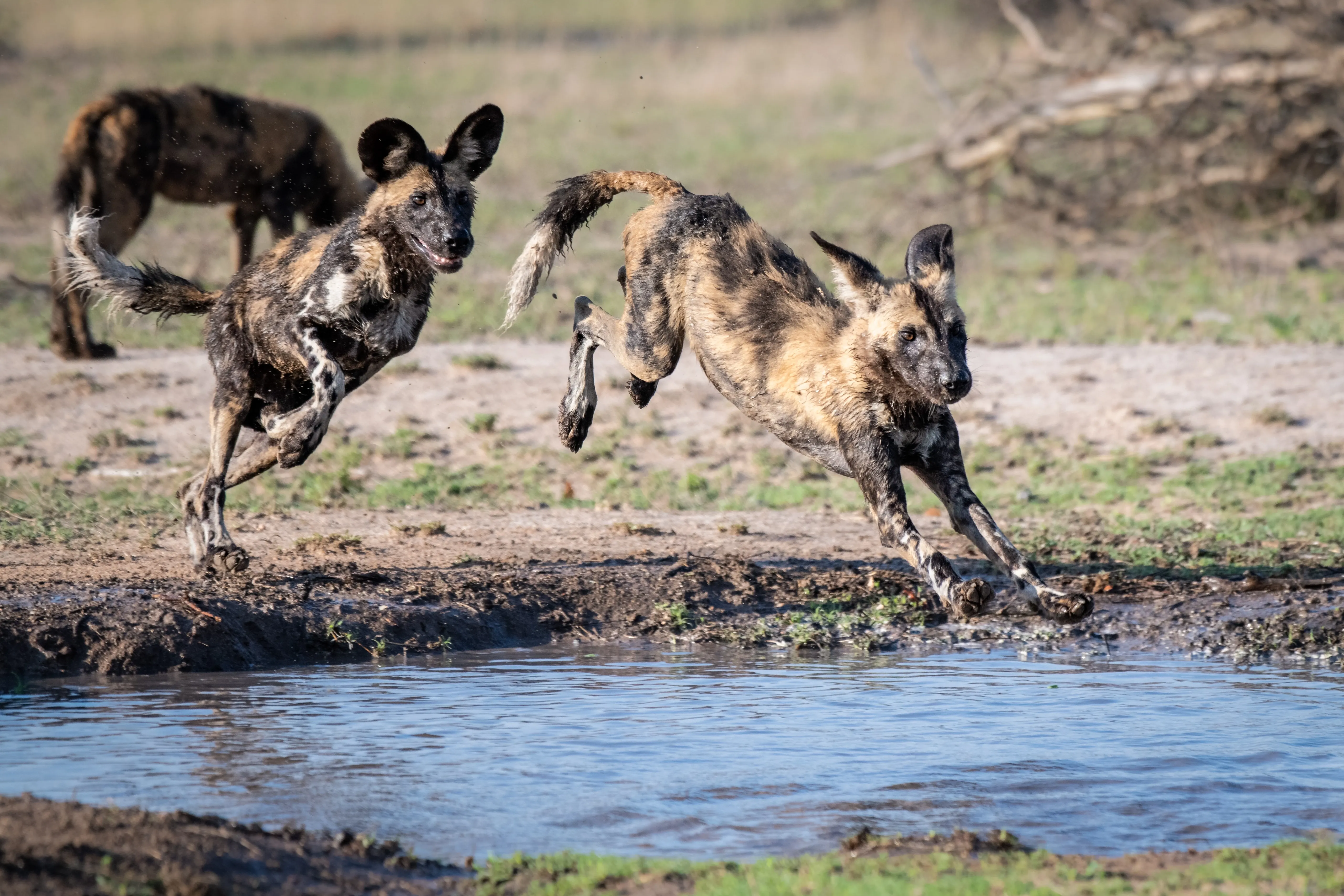
Why we need to protect African wild dogs?
Protecting African wild dogs is crucial for several compelling reasons. As one of Africa's most endangered carnivores, their survival is vital to maintaining the ecological balance of their habitats. These animals play a key role in controlling prey populations, which helps sustain healthy ecosystems and promotes biodiversity. Their complex social structures and cooperative hunting strategies also make them an indicator species, reflecting the overall health of the environment.
Unfortunately, African wild dogs face numerous threats, including habitat loss, human-wildlife conflict, and disease, which have drastically reduced their numbers. Within 100 years their numbers have dropped from half a million to around 6,600 individuals, from which only 1400 adults are able to breed.
By safeguarding these predators, we are not only helping to prevent their extinction but also supporting the broader conservation of the ecosystems they inhabit. Protecting African wild dogs also contributes to the preservation of other species that share their habitat, fostering a more balanced and resilient environment.
Additionally, their conservation efforts can bolster local economies through eco-tourism, raising awareness and encouraging sustainable practices. Overall, ensuring the survival of African wild dogs is integral to preserving the intricate web of life that supports both wildlife and human communities.
How to save African Wild dogs
To effectively conserve African wild dogs, a multi-faceted approach is essential. This involves protecting and restoring their habitats, ensuring they have enough space to roam by preserving and rehabilitating areas and creating wildlife corridors. Reducing human-wildlife conflict through education, non-lethal livestock protection, and promoting coexistence is also crucial.
Ongoing monitoring and research are necessary to understand and address threats like disease outbreaks, with vaccination programs being vital for prevention. Combating poaching through increased patrolling and strict enforcement of wildlife laws is key to their protection. Engaging local communities in conservation efforts, providing incentives, and involving them in monitoring can foster support.
Advocacy for stronger legal protections and raising public awareness about the ecological importance of African wild dogs are also critical for generating support and funding. Addressing these aspects collectively helps ensure a sustainable future for these animals and the ecosystems they inhabit.
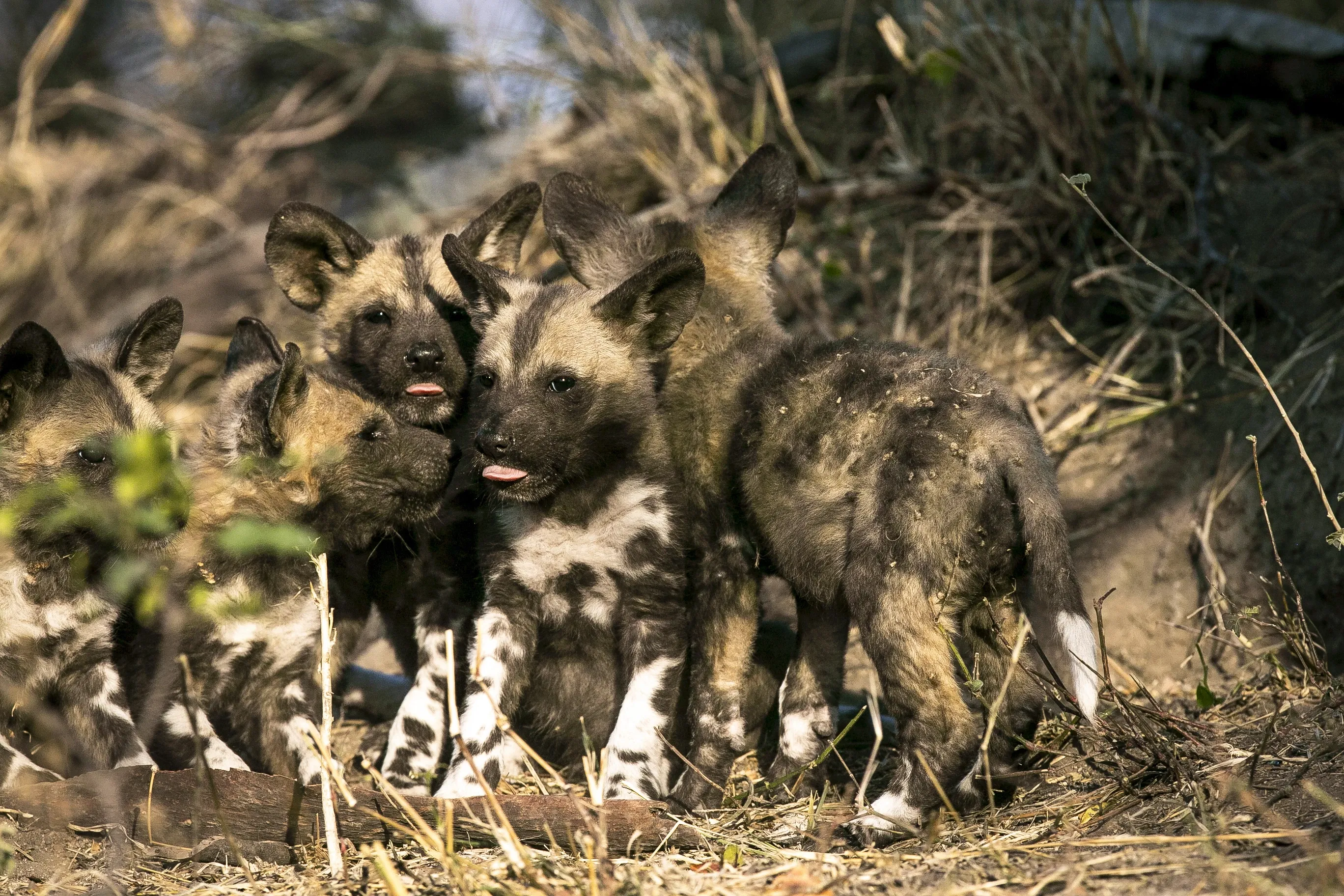
What do I need to know about volunteering with African wild dogs?
Volunteering with African wild dogs is a fulfilling endeavour, but it requires careful consideration and preparation. Before committing, thoroughly research the organization to ensure its values align with your own conservation ethics. Evaluate the specific tasks you'll be involved in, which may include tracking and monitoring wild dogs, collecting and entering data, assisting with habitat restoration, and addressing human-wildlife conflicts.
While volunteering with wild dogs, you will often get a chance to be involved with research and conservation efforts for other remarkable flagship species of Africa, such as spotted hyenas, cheetahs, vultures, or even the Big 5. This offers a unique opportunity to broaden your understanding of African wildlife conservation beyond just wild dogs.
Be prepared for both the physical and mental demands of the role. Working with wild dogs often involves long hours outdoors in various weather conditions, so physical fitness and resilience are important. You may also need to adapt to challenging environments, such as hot and humid climates, and be ready to follow strict safety guidelines. This includes maintaining a respectful distance from the animals, avoiding intrusive behavior, and adhering to rules regarding photography, such as avoiding the use of flash.
Volunteering with African wild dogs also entails a commitment to conservation ethics and practices. You'll need to advocate for sustainable methods, engage in ongoing learning, and help educate others about the importance of protecting these endangered predators. Your dedication will not only contribute to the conservation of African wild dogs but also support the broader health of their ecosystems.
Where can I volunteer with African wild dogs?
African wild dogs, also known as painted wolves, are native to sub-Saharan Africa and historically ranged widely across the continent. They inhabit a variety of environments, including savannas, grasslands, and wooded areas. These animals require ample prey and large territories to support their complex social structures and hunting strategies. However, their distribution has become more fragmented today due to various threats.
In Southern Africa, African wild dogs can be found in countries like Zimbabwe, Botswana, and South Africa. Notable locations include Hwange National Park in Zimbabwe, the Okavango Delta and Chobe National Park in Botswana, Luangwe National Park in Zambia, and Kruger National Park in South Africa. These regions offer critical habitats for the species, though they face ongoing challenges in terms of conservation.
In East Africa, significant populations of African wild dogs are found in Kenya and Tanzania. In Kenya, areas such as the Laikipia Plateau and the Mara Conservancies are known for their conservation efforts to protect these animals. Tanzania’s Selous Game Reserve is another important location for the species, playing a vital role in safeguarding their future.
There are numerous volunteering opportunities to support African wild dogs in these areas. Monitoring efforts are available in regions such as Limpopo or KwaZulu Natal in South Africa, including the greater Kruger National Park and the Imfolozi-Hluhluwe National Park. Research opportunities also exist in Malawi’s Liwonde National Park, where successful relocation work has taken place between Imfolozi-Hluhluwe and Liwonde. Joining a dedicated team in these groundbreaking projects offers a thrilling and impactful experience, contributing to the preservation and conservation of African wild dogs.
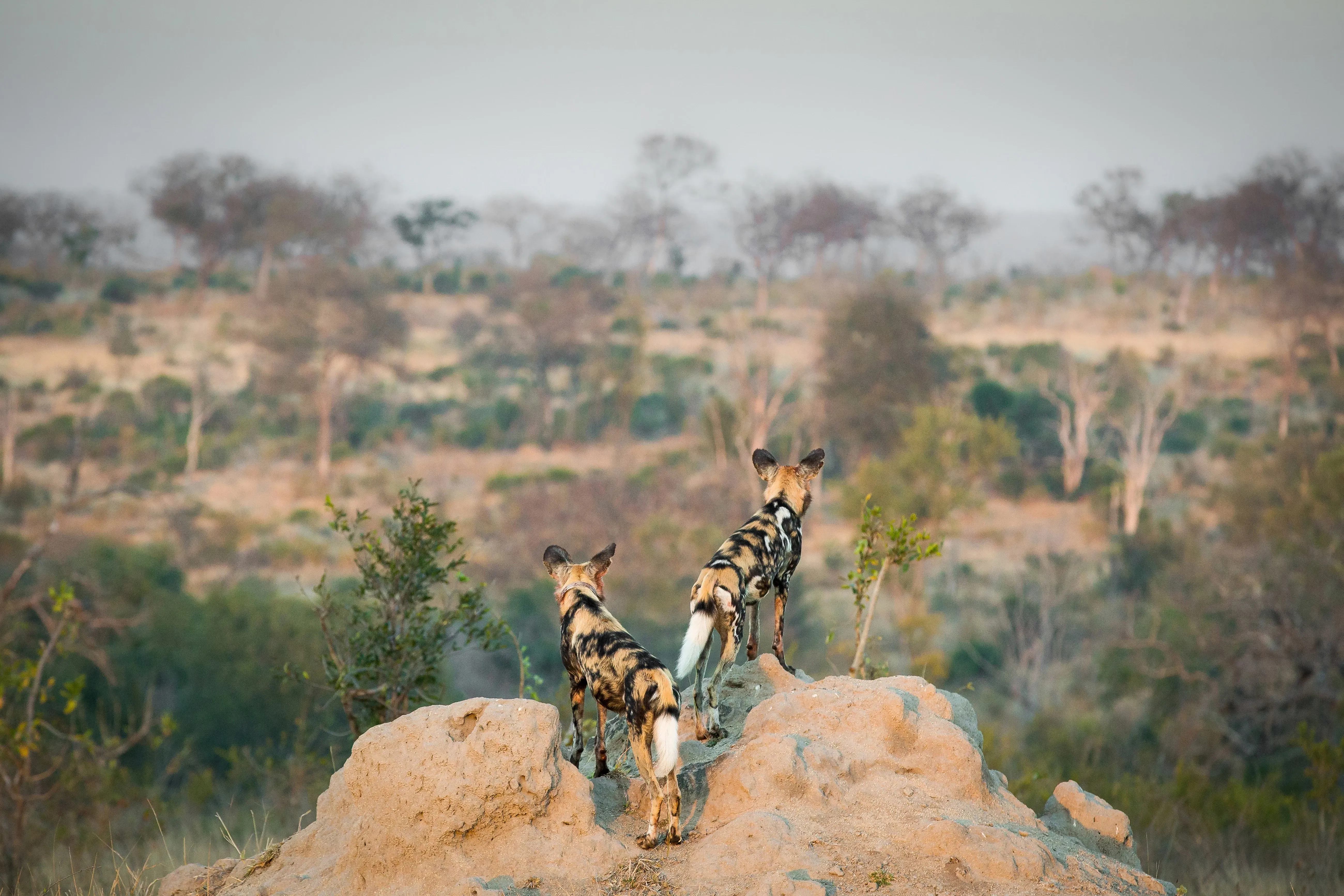
How I can learn more about African wild dogs?
To deepen your understanding of African wild dogs, you can explore several engaging and informative resources. Start by diving into books and academic articles authored by wildlife experts and conservationists. These materials offer detailed insights into the biology, behavior, and conservation challenges faced by African wild dogs. Look for titles by renowned researchers or publications in scientific journals that focus on carnivores and their ecosystems.
Documentaries and educational videos can provide a visual and narrative perspective on African wild dogs, showcasing their natural behaviors, social structures, and the conservation efforts aimed at protecting them. Platforms like National Geographic, BBC Wildlife, and various streaming services often feature such content, allowing you to see the species in their natural habitat and gain a deeper understanding of their world.
Attending workshops, lectures, and seminars hosted by universities, wildlife organizations, and conservation groups is another excellent way to learn more. These events often feature experts who share their latest research and conservation strategies, offering valuable opportunities for interactive learning and networking with professionals in the field.
Additionally, engaging with online resources such as blogs, forums, and social media groups dedicated to wildlife conservation can provide updates on current research, fieldwork, and conservation initiatives related to African wild dogs. Participating in citizen science projects or volunteering with conservation programs can also offer hands-on experience and a deeper, practical understanding of their needs and the challenges they face.
Reasons to volunteer with African wild dogs
- #1 Conservation impact: Volunteering with African wild dogs contributes to the preservation of this critically endangered species and supports the protection of their habitats. Your involvement helps ensure the long-term ecological balance in the affected areas.
- #2 Unique wildlife experience: Volunteering in animal conservation provides practical experience and allows you to witness the behavior, social dynamics, and daily challenges of these fascinating predators in their natural habitat.
- #3 Skills development: Working with African wild dogs enables you to acquire valuable skills in wildlife tracking, monitoring, data collection, and conservation techniques, enhancing your expertise and future career prospects in wildlife management and research.
- #4 Cultural exchange: During your volunteer work with African wild dogs, you have the opportunity to engage with local communities and learn about their perspectives on conservation and wildlife. This fosters mutual understanding and support for the protection of African wild dogs.
- #5 Personal fulfillment: You will experience the rewarding feeling of making a tangible difference in the protection of an endangered species while being part of a dedicated team working on significant projects.
Sign up for the newsletter
By clicking on “Subscribe now” I will subscribe to the Conscious Explorer newsletter with all the information about mindful travel. Information on the success measurement included in the consent, the use of the shipping service provider MailChimp, logging of the registration and your rights of revocation can be found in our privacy policy.
